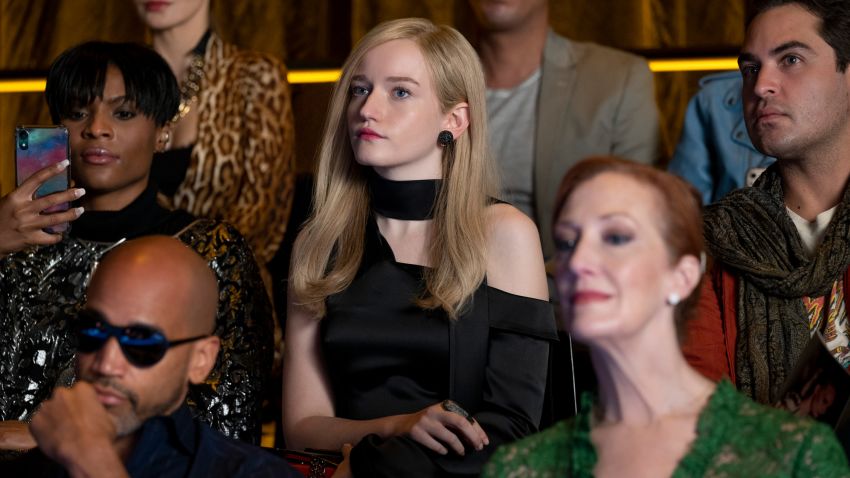Reading Lists
8 Schemers and Opportunists in Literature
Elyse Friedman, author of "The Opportunist," recommends novels about conniving characters plotting for power, sex, revenge, riches

From Iago, Claudius, Richard III, and the murderous Macbeths in Shakespeare, to Choderlos de Laclos’s master manipulators in Les Liasons Dangereuses, to Nabokov’s silver-tongued Humbert Humbert (who seduces the reader as effectively as he seduces young Lolita), opportunists abound in literature.

My last novel, The Answer to Everything, was about an impecunious artist who starts a cult to make money. In my most recent book, The Opportunist, I gave myself an entire cast of conniving characters to backstab, menace and double-cross.
So, why do these odious types show up between the pages so often? Because, while they may be dodgy, even despicable, opportunists are never boring. They hunger for power, sex, revenge, riches (all the juicy stuff!) and will turf any principle to get what they want. If you aren’t acquainted with the opportunists listed below, I urge you to hit up your local bookstore or library forthwith.
In no particular order, here is an armload of deliciously deceitful reads:
What Was She Thinking?: Notes on a Scandal by Zoe Heller
Heller creates a wonderfully textured portrait of the treacherous Barbara Covett (maybe a little on point with the name though) in this tale of loneliness, desire and betrayal. Barbara, a friendless spinster who is amusingly contemptuous of almost everyone, becomes infatuated with Sheba, the blithe new pottery instructor at the school where they both teach. Barbara expertly wheedles her way into Sheba’s seemingly perfect life, becoming her key confidante. But when Barbara discovers that she has exaggerated her own standing in Sheba’s heart and mind—spaces occupied by those she deems far less worthy—she becomes enraged, bitter and vengeful. The book is presented as Barbara’s carefully written account of the scandal that explodes her friend’s life: Sheba’s ill-conceived affair with a 15-year-old student. Guess who detonates the bomb?
The Apprenticeship of Duddy Kravitz by Mordecai Richler
Come for the wheeling and dealing young gonif Duddy Kravitz, stay for the authentic flavor of mid-century Montreal, specifically Mile End, a working-class Jewish neighborhood (where breakfast at the cab-stand is a salami sandwich and a Pepsi) and Ste. Agathe, Canada’s answer to the Catskills. Duddy isn’t all bad, and watching him teeter on the edge of decency is what makes this story so ultimately heartbreaking. In becoming a big macher like the notorious Jerry Dingleman, a kid from the block who made good, Duddy betrays his friends, his family, his lover and his soul.
Laughter in the Dark by Vladimir Nabokov
Love is literally blind in this wonderfully wicked tale of a man who has everything and loses it all. Albinus is a wealthy, respected art critic, living in Berlin with his devoted wife and daughter. One evening at the movies, he spots Margot Peters, an usher with a “pale, sulky, painfully beautiful face.” He pursues the 18-year-old and soon begins an affair. Margot, a vulgar slattern, doesn’t give a toss about Albinus, but she knows a meal ticket when she sees one. Even though he’s an adulterer who eagerly abandoned his spouse and young child, it’s hard not to feel a little sorry for Albinus as first Margot, and then Margot and her dastardly boyfriend Rex, strip him of absolutely everything (including his eyesight). You can almost hear Nabokov chuckling as he gleefully puts Albinus through the Margot/Rex wringer.

Alys, Always by Harriet Lane
Frances Thorpe is driving home one night when she comes across a crashed car with a dying woman inside. By the time the ambulance arrives, Alys Kyte is dead. Because Frances was the last to speak to her and hear her final words, Alys’s family wishes to meet her. Thus begins Frances’s entry into a world of wealth, privilege and culture. It turns out that Alys was the wife of celebrated author Laurence Kyte, and the mother of two children. Once Frances gets a glimpse of the Kytes’ lifestyle, complete with country house and swimming pool and lunches at the club, it’s as if a veil has been lifted. There’s really no going back to her lowly singleton existence. Frances is a clever woman who knows exactly what makes people tick. That insightfulness, plus an abundance of patience, enables her to infiltrate the world of the Kytes and milk the illustrious connection for all its worth.
Erasure by Percival Everett
Everyone gets erased—whether through dementia, murder, or an opportunistic act of self-deletion—in this scathing novel about an African American writer and his family. Thelonius Ellison, aka Monk, is an erudite novelist who writes books that the publishing industry doesn’t want—at least not from Black writers. They prefer runaway bestsellers like We’s Lives in Da Ghetto by a contemporary of Monk’s who spent a week in Harlem once. Pissed that his most recent manuscript is failing to attract an offer, he bangs out a parody of what he thinks the White world wants from him: My Pafology— a “gangsta” tale of turmoil (in which chapter four is “Fo” and chapter five is “Fibe”). Alas, the manuscript is taken at face value and his agent sells publishing and movie rights for gazillions, forcing Monk to make a decision. Will he own up to his prank, or will he become Stagg R. Leigh, the ostensible author of the ghetto narrative? Monk isn’t conniving or evil, but he does seize a lucrative opportunity in an unprincipled way, and his literary hoax is too cutting and fun not to include on this list.
The Switch by Elmore Leonard
The bad guys in Elmore Leonard novels range from slightly adorable to absolutely terrifying. In The Switch, we have two of the former and one of the latter. Louis and Ordell are low-level criminals who kidnap the wife of Frank Dawson, a rich and shady businessman. Richard is the dangerously stupid, heavily-armed neo-Nazi with a convenient place to stash Mickey, the businessman’s wife, until he forks over the ransom. The fly in the ointment: hubby has no intention of paying. Frank filed for divorce from Mickey a few days before she was kidnapped, and he has a buxom young mistress who he hopes to marry when the kidnappers conveniently make it easy for him to do so. The fun is in watching Mickey self-actualize and go from meek housewife/kidnapping victim to full on opportunist when she learns the truth about her asshole of a husband.
The Plot by Jean Hanff-Korelitz
A fun one, especially for writers. Jacob Finch Bonner’s first novel garnered the “New and Noteworthy” stamp of approval from the New York Times Book Review. His second was a bit of a bust. His third and fourth couldn’t find publishers. Now, the once promising writer is slogging it out as a teacher in a series of third-rate MFA programs around the country. As he begins his latest gig at Ripley College, Jake expects the usual cast of MFA-program types. What he doesn’t expect is Evan Parker, a smug young man who says writing can’t be taught and that he only joined the program to get an agent out of it. Parker informs Jake that he is well into a novel, one with such a compelling plot it will be an unparalleled success, a “sure thing” that Oprah will pick for her book club and everyone will buy and love. One evening, Evan privately shares the plot of his novel with Jake, and Jake realizes with chagrin that the arrogant jerk is right. The story is so good it can’t be messed up. When the program is done, Jake waits for the news of Parker’s outrageous advance and insta-success. But it doesn’t arrive. And Jake learns why: Evan has died. So, Jake pinches the plot and writes the novel himself, and just as Evan predicted, it’s a huge success, propelling Jake to the top of the bestseller lists and back to literary stardom. There’s just one problem: somebody out there knows Jake stole the story, and he’s going to have to deal with the repercussions.
The Robber Bride by Margaret Atwood
You won’t find a more malevolent force than the beautiful and deadly Zenia, who rampages through the lives of three very unlikely friends: Tony (Antonia), a war historian, Roz, a wealthy businesswoman, and Charis, a hippie-dippy crystal seller who reads auras and raises chickens in her backyard. What bonds these disparate women together is their shared dread and hatred of Zenia, the maneater, the husband stealer, the thief, the liar, the rogue who stirs up strife for the sheer pleasure of it. Bitch on wheels is too gentle a term for cunning, malicious Zenia, whose words are “what a fist sounds like just as it smashes.” When the book was first published, rumors swirled about who Zenia might be based on, and it’s fun to read and speculate on Atwood avenging herself (or her pals) in print.








